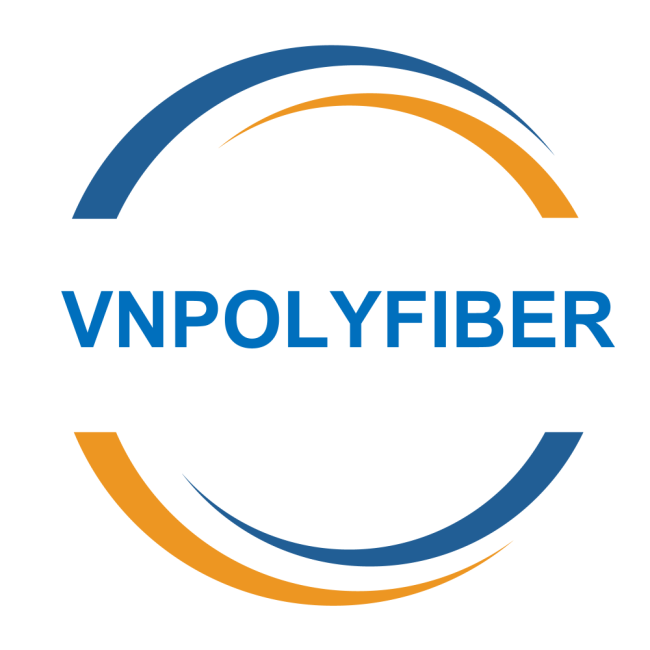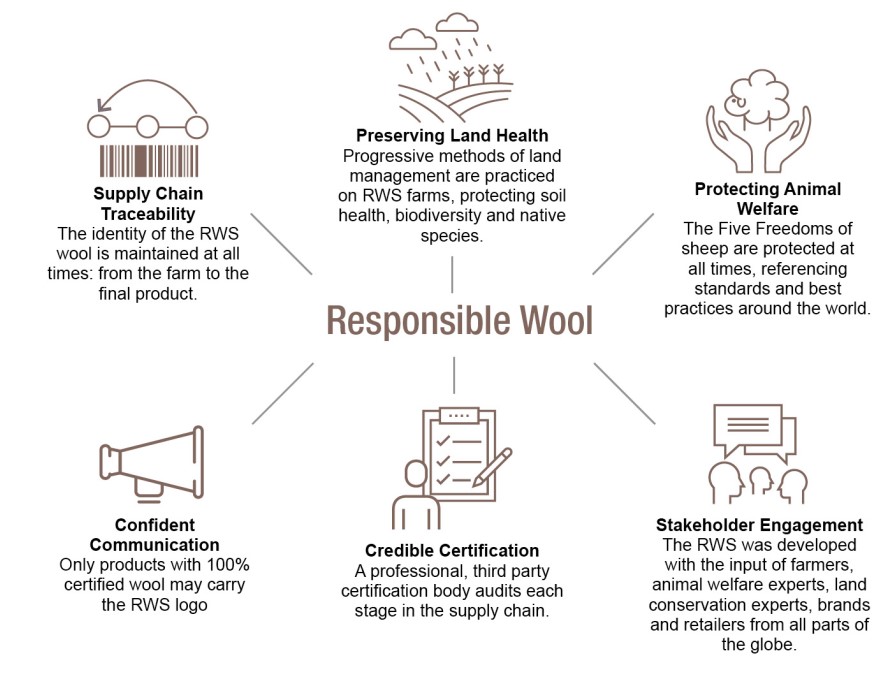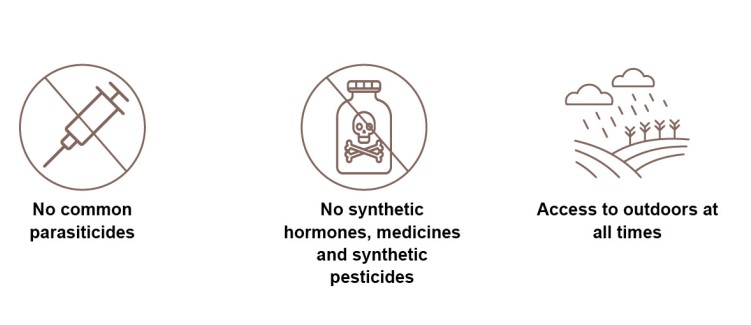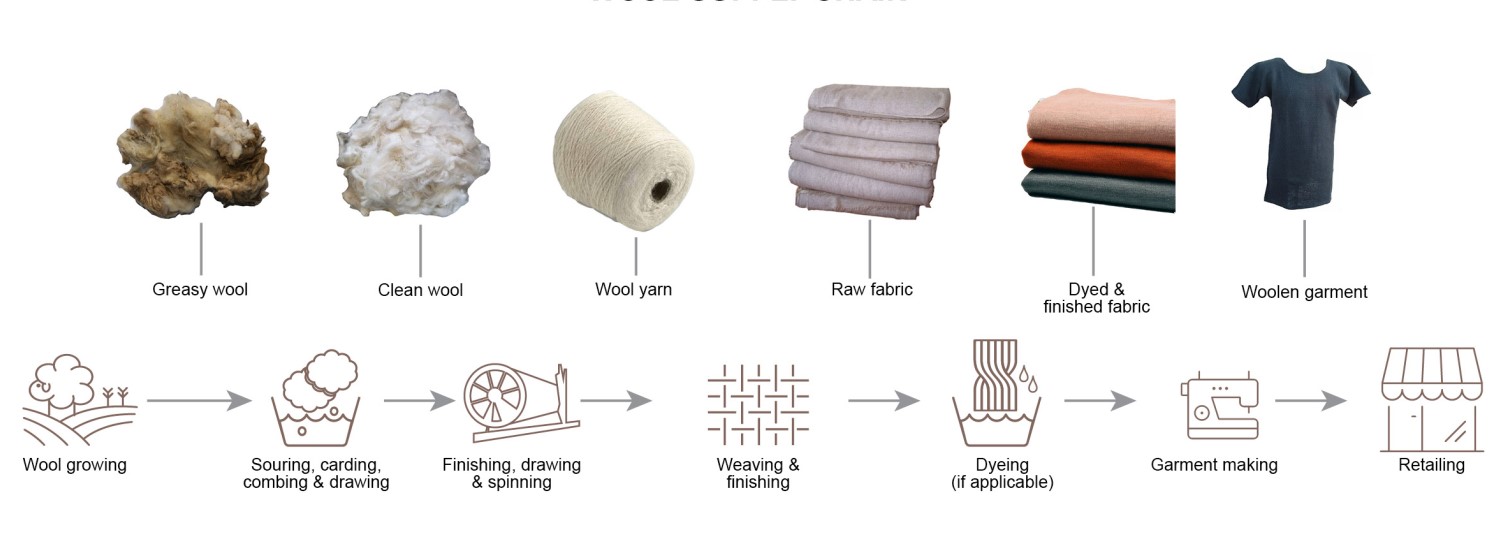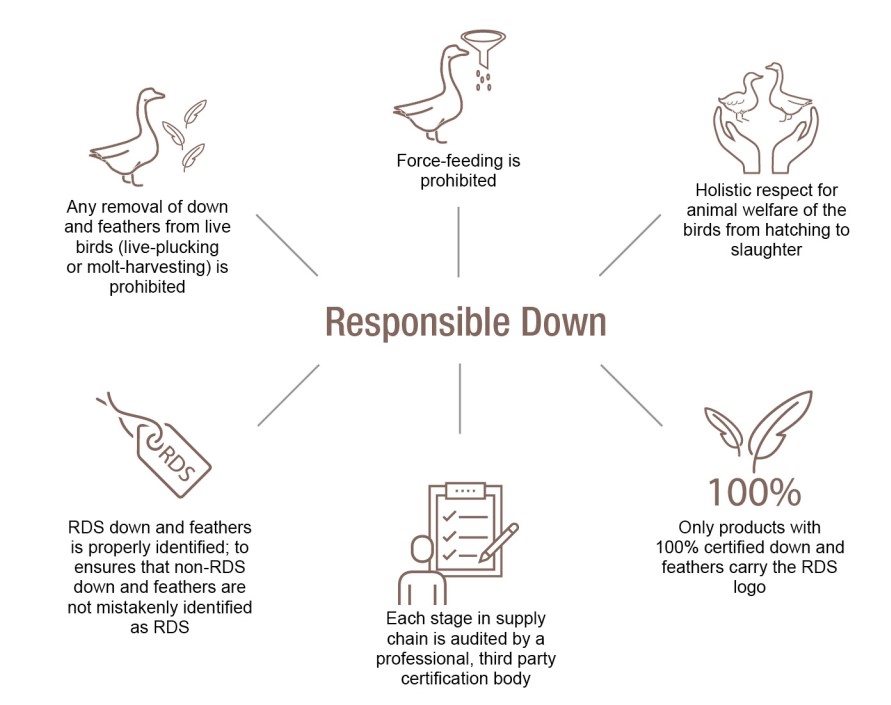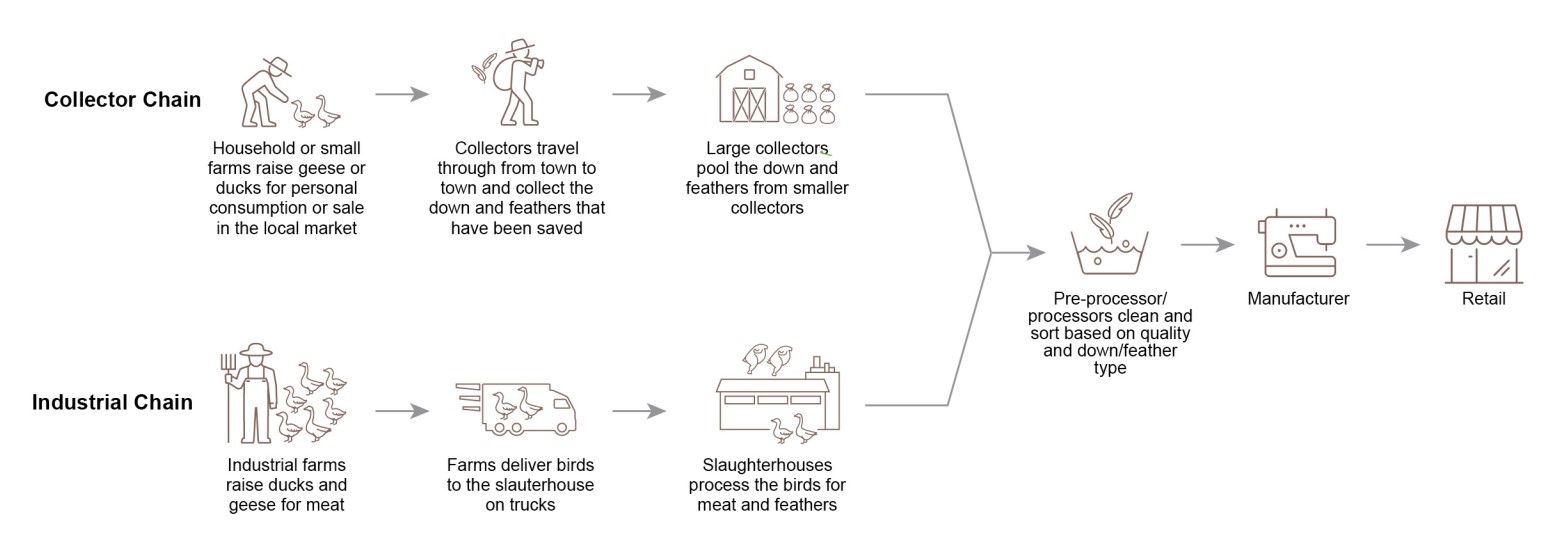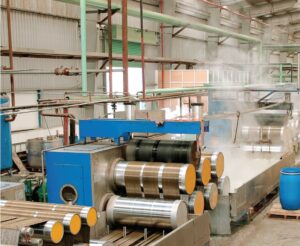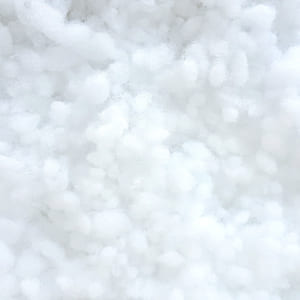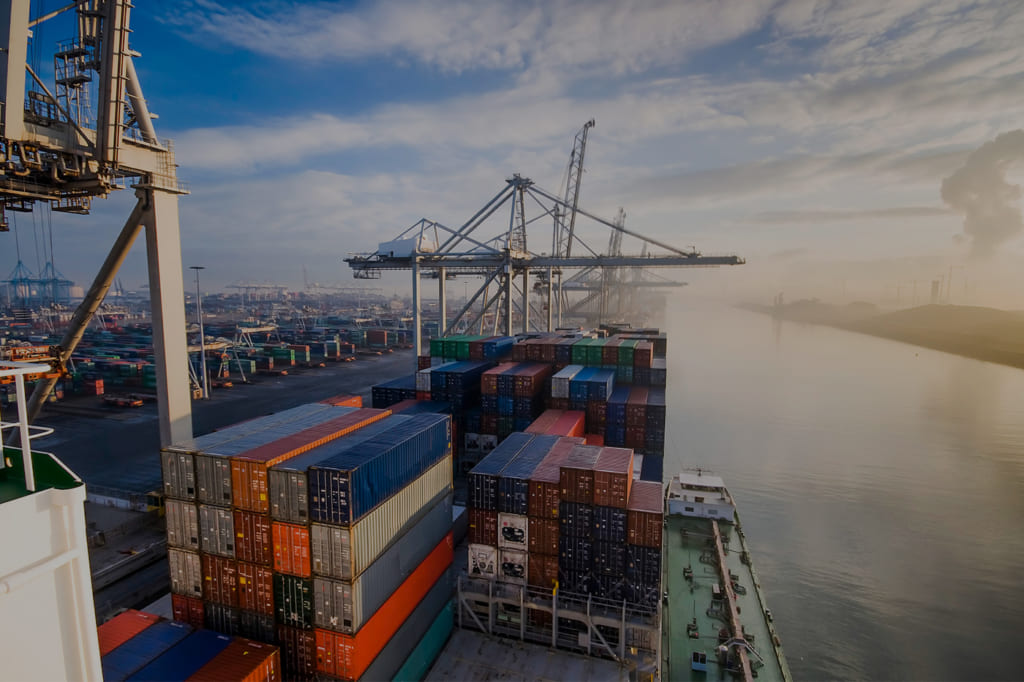So far, we have found the Responsible Wool Standard (RWS), which ensures that farms use best practices to protect the land, and treat the animal decently.
Certified organic wool guarantees that pesticides and parasiticides are not used on the pastureland or the sheep themselves, and that good cultural and management practices of livestock are used. Certified organic wool is still pretty rare on the market. GOTS seems to be the only organization certifying organic wool.
WHAT IS RESPONSIBLE WOOL?
Wool is a natural fiber with a long history of being used in textiles for generations. It’s known for thermal insulation, relatively low odor retention, and moisture-wicking. There are many different varieties of wool, from course wool to very fine, merino wool. The use of merino wool is growing across the apparel market, and especially in the outdoor industry.
The Responsible Wool Standard (RWS) is an independent, voluntary standard. On farms, the certification verifies that sheep are treated concerning their Five Freedoms and also verifies best practices in land management. Through the processing stages, certification ensures that wool from certified farms is properly identified and tracked.
WHAT IS ORGANIC WOOL?
While niche, the organic wool market is fairly well established. Organic wool makes up approximately one percent of global wool production. Organic livestock management differs from conventional in that: sheep cannot be dipped in commonly used parasiticides; use of conventional synthetic hormones, medicines, and synthetic pesticides is prohibited, and sheep must have access to the outdoors at all times.
WOOL SUPPLY CHAIN
Recycled Cotton
Recycled cotton prevents additional textile waste and requires far fewer resources than conventional or organic cotton. This makes it a great sustainable option. 765,000 liters of water can be saved per ton of cotton recycled.
Cotton can be recycled using old garments or textile leftovers. The quality of the cotton may be lower than that of new cotton. Recycled cotton is therefore usually blended with new cotton.
The production of recycled cotton is still very limited.
Recycled Wool
Recycled wool is also a very sustainable option. Apart from diverting used wool garments from landfills, it saves a considerable amount of water, reduces land use for sheep grazing, and avoids the use of chemicals for dyeing. 11 KG of CO2 and 500 liters of water are saved per kilo of recycled wool produced compared to virgin wool.
Recycled wool contributes to a reduction of air, water, and soil pollution.
Few certification labels exist to ensure consumers that wool is really recycled, such as Recycled Claim Standard (RCS), Global Recycled Standard (GRS), SCS Recycled Content Certification.
WHAT IS RESPONSIBLE DOWN?
Responsible Down is down certified to the Responsible Down Standard (RDS). The standard aims to ensure that down and feathers come from animals that have not been subjected to unnecessary harm. We hope that the standard can be used to reward and influence the down and feather industry to incentivize practices that respect the humane treatment of ducks and geese. We believe that education — through the RDS — is a meaningful way to drive demand for strong animal welfare practices. The standard also provides companies and consumers with a tool to know what is in their products and to make accurate claims.
DOWN SUPPLY CHAIN
Source from: https://textileexchange.org/learning-center/preferred-down/
